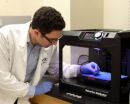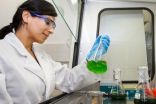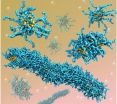(Press-News.org) Emergency department nurses aren't like the rest of us – they are more extroverted, agreeable and open – attributes that make them successful in the demanding, fast-paced and often stressful environment of an emergency department, according to a new study by University of Sydney.
"Emergency nurses are a special breed," says Belinda Kennedy from Sydney Nursing School, a 15 year critical care veteran who led the study.
"Despite numerous studies about personalities of nurses in general, there has been little research done on the personalities of nurses in clinical specialty areas.
"My years working as a critical care nurse has made me aware of the difficulty in retaining emergency nurses and I have observed apparent differences in personality among these specialty groups. This prompted me to undertake this research which is the first on this topic in more than 20 years.
"We found that emergency nurses demonstrated significantly higher levels of openness to experience, agreeableness, and extroversion personality domains compared to the normal population.
"Emergency departments (ED) are a highly stressful environment - busy, noisy, and with high patient turnover. It is the entry point for approximately 40 per cent of all hospital admissions, and the frequency and type of presentations is unpredictable.
"Emergency nurses must have the capacity to care for the full spectrum of physical, psychological and social health problems within their community.
"They must also able to develop a rapport with individuals from all age groups and socioeconomic and cultural backgrounds, in time-critical situations and often at a time when these individuals are at their most vulnerable.
"For these reasons, ED staff experience high levels of stress and emotional exhaustion, so it's understandable that it takes a certain personality type to function in this working environment.
"Our research findings have potential implications for workforce recruitment and retention in emergency nursing.
"With ever-increasing demands on emergency services it is necessary to consider how to enhance the recruitment and retention of emergency nurses in public hospitals. Assessment of personality and knowledge of its influence on specialty selection may assist in improving this.
"The retention of emergency nurses not only has potential economic advantages, but also a likely positive impact on patient care and outcomes, as well as improved morale among the nursing workforce."
INFORMATION:
The research team consisted of Associate Professor Kate Curtis and Associate Professor Donna Waters from Sydney Nursing School, University of Sydney.
Research published in Australasian Emergency Nursing Journal.
Media enquiries: Kobi Print
612 9036 7589
61 481 012 729
or kobi.print@sydney.edu.au
Emergency department nurses aren't like the rest of us: New study
2014-08-21
ELSE PRESS RELEASES FROM THIS DATE:
Louisiana Tech University researchers use 3D printers to create custom medical implants
2014-08-21
RUSTON, La. – A team of researchers at Louisiana Tech University has developed an innovative method for using affordable, consumer-grade 3D printers and materials to fabricate custom medical implants that can contain antibacterial and chemotherapeutic compounds for targeted drug delivery.
The team comprised of doctoral students and research faculty from Louisiana Tech's biomedical engineering and nanosystems engineering programs collaborated to create filament extruders that can make medical-quality 3D printing filaments. Creating these filaments, which have specialized ...
Water and sunlight the formula for sustainable fuel
2014-08-21
An Australian National University (ANU) team has successfully replicated one of the crucial steps in photosynthesis, opening the way for biological systems powered by sunlight which could manufacture hydrogen as a fuel.
"Water is abundant and so is sunlight. It is an exciting prospect to use them to create hydrogen, and do it cheaply and safely," said Dr Kastoori Hingorani, from the ARC Centre of Excellence for Translational Photosynthesis in the ANU Research School of Biology.
Hydrogen offers potential as a zero-carbon replacement for petroleum products, and is already ...
Researchers develop models to study polyelectrolytes, including DNA and RNA
2014-08-21
Researchers from North Carolina State University have developed a novel and versatile modeling strategy to simulate polyelectrolyte systems. The model has applications for creating new materials as well as for studying polyelectrolytes, including DNA and RNA.
"Our new technique allows us to model much larger and more complex polyelectrolyte systems, and to do so much more quickly," says Nan Li, lead author of a paper on the work and a Ph.D. student in NC State's Department of Materials Science and Engineering. "This is a big step forward for this field."
Polyelectrolytes ...
Adherence to diet can be measured from blood
2014-08-21
New results from the Nordic SYSDIET study show that it's possible to assess dietary compliance from a blood sample. This is especially useful in controlled dietary intervention studies investigating the health benefits of specific diets. So far, such studies have mainly relied on the participants' self-reported dietary intake, which is often biased, making it more difficult to assess the real health benefits.
In the recently published study authored by Dr Matti Marklund and coworkers, the researchers were able to identify the study participants with the greatest apparent ...
A novel pathway for prevention of heart attack and stroke
2014-08-21
Finnish researchers have found that the low-expression variant of fatty acid-binding protein 4 (FABP4), which is particularly common among Finns, reduces the risk of heart attack and stroke. The finding revealed a promising new way to customise a potentially preventive drug for atherosclerosis.
Led by Professor Perttu Lindsberg, the long-term research project of the Department of Neurology at the Hospital District of Helsinki and Uusimaa (HUS) focuses on carotid atherosclerosis. It is a joint effort involving the University of Helsinki, the Helsinki University Central ...
Feeling bad at work can be a good thing (and vice versa)
2014-08-21
LIVERPOOL, UK – 05 August 2014: Research by the University of Liverpool suggests that, contrary to popular opinion, it can be good to feel bad at work, whilst feeling good in the workplace can also lead to negative outcomes.
In a Special Issue published in Human Relations, Dr Dirk Lindebaum from the University's Management School, together with his co-author Professor Peter Jordan, developed a new line of study, and commissioned research to further explore the role of emotions in the workplace.
They found that the commonly-held assumption that positivity in the workplace ...
Counselling has limited benefit on young people drinking alcohol
2014-08-21
Counselling techniques used to help young people with drinking problems may be of limited benefit, a new study suggests. In a systematic review published in The Cochrane Library, researchers found that an approach known as motivational interviewing did not substantially reduce drinking or alter alcohol-related behaviour.
Globally every year, around 320,000 young people between the ages of 15 and 29 die as a result of alcohol misuse. Most of these deaths are due to car accidents, murders, suicides or drowning. Motivational interviewing is a counselling technique developed ...
Regular blood transfusions can stave off repeat strokes in children with sickle cell disease
2014-08-21
Monthly blood transfusions can substantially reduce the risk of recurrent strokes in children with sickle cell disease (SCD) who have already suffered a silent stroke, according to the results of an international study by investigators at the Johns Hopkins Children's Center, Vanderbilt University and 27 other medical institutions.
Results of the federally funded research described in the Aug. 21 issue of The New England Journal of Medicine, show that children with preexisting silent strokes who receive monthly transfusions have 58 percent lower risk of suffering repeat ...
NEJM Perspective: 'Studying 'Secret Serums' -- Toward Safe, Effective Ebola Treatments'
2014-08-21
WASHINGTON – Conducting clinical studies of agents to treat Ebola and allowing compassionate use of those agents are not necessarily mutually exclusive, writes Georgetown University Medical Center's (GUMC) Jesse L. Goodman, M.D., M.P.H., in a perspective piece published Wednesday in the New England Journal of Medicine.
In "Studying 'Secret Serums' — Toward Safe, Effective Ebola Treatments," Goodman describes the Ebola virus as "one of the world's most feared pathogens." The latest Ebola outbreak that began in West Africa in Dec. 2013 has infected more than 2,200 people ...
Imaging study reveals white-matter deficits in users of codeine-containing cough syrups
2014-08-20
Aug. 20, 2014 -- An imaging study of chronic users of codeine-containing cough syrups (CCS) has found deficits in specific regions of brain white matter and associates these changes with increased impulsivity in CCS users.
Researchers used diffusuion tensor imaging (DTI) (an MR imaging technique), coupled with fractional anisotropy, to investigate the white matter integrity of chronic CCS users. Deficits were found in multiple regions of the brain, including the inferior fronto-occipital fasciculus, which other studies have found to be abnormal in other forms of addiction, ...


